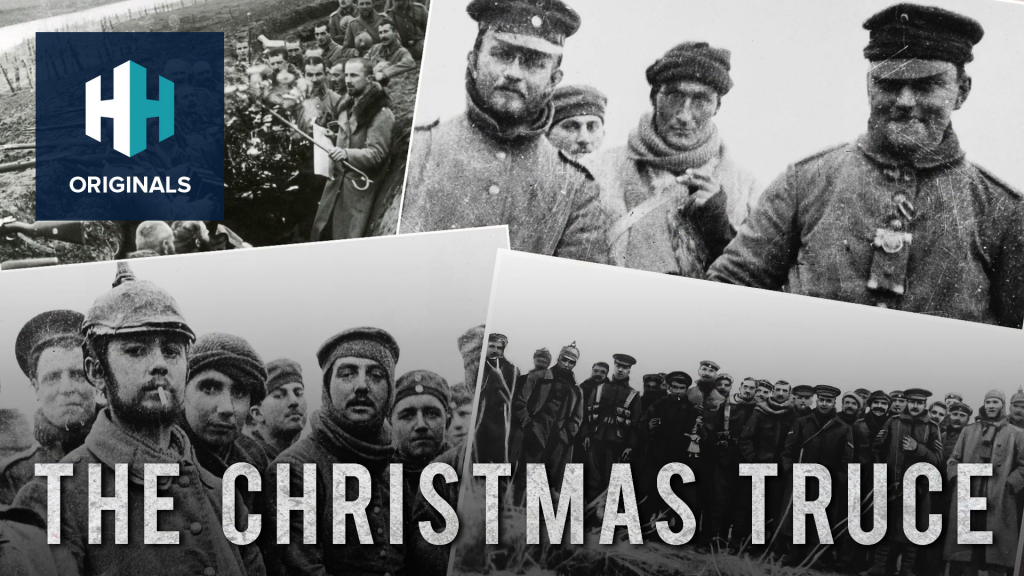Austrian Archduke and heir to the throne Franz Ferdinand was assassinated in Bosnia by terrorists hostile to Austria’s presence in the Balkans. In response the Austrian government issued an ultimatum to Serbia. When Serbia did not submit unconditionally to its demands the Austrians declared war.
Austrian Emperor Franz Josef believed wrongly that he could do this without attracting hostility from other countries. The Austrian declaration of war gradually drew many of the other powers into the war via a complex system of alliances.
 Listen Now
Listen NowWar in the West
At the end of these 6 months a stalemate on the western front had emerged. Early battles were different and tended to involve much more dynamic changes of possession.
At Liege the Germans established the importance of artillery by bombarding a fortress held by the Allies (British, French and Belgian). The British held them at the Battle of Mons not long after though, highlighting that a small and well trained force could hold off a numerically superior enemy of lesser ability.
In their first engagements of the war the French suffered huge losses due to outdated approaches to war. At the Battle of the Frontiers they invaded Alsace and incurred catastrophic losses including 27,000 deaths in a single day, the highest death toll by one Western Front army of any day in the war.

The Battle of the Frontiers.
On 20 August 1914 German soldiers captured Brussels as part of their march to France via Belgium, the first part of the Schlieffen Plan. The Allies halted this advance outside Paris at the First Battle of the Marne.
The Germans then fell back to a defensive ridge on the Aisne River where they began to entrench. This began the stalemate on the Western Front and marked the start of the race to the sea.
By late 1914 it was increasingly clear that neither army would outflank the other and the battle in the west became for strategic points on the front which now stretched in trenches from the North Sea coast to the Alps. In a month long battle from 19 October 1914 a German army, many of them student reservists, attacked unsuccessfully with massive casualties.
In December 1914 the French launched the Champagne Offensive in hopes of breaking the deadlock. Many of its battles were inconclusive but it continued into 1915 with few gains but thousands of casualties.
 Watch Now
Watch NowOn 16 December German ships fired on civilians in the British towns of Scarborough, Whitley and Hartlepool. The bombardment caused 40 deaths and was the first attack on British civilians on home soil since the 17th century.
In an unexpected moment of good will soldiers on all sides declared a Christmas truce in 1914, an event which has now become legendary but at the time was seen with suspicion and led to commanders working towards restricting future fraternization.
War in the East
In the east the most combatants had seen both successes and failures but the Austrian performance had been nothing short of disastrous. Not planning for a long war, the Austrians deployed 2 armies in Serbia and only 4 in Russia.
One of the first important battles of the north eastern campaign came in late August when the Germans defeated the Russian army near Tannenberg.
Further south around the same time the Austians were driven out from Serbia and beaten by the Russians at Galicia which in turn led them to garrison a large force at Przemyśl fortress where they would remain under siege by the Russians for a long time.
By mid-October Hindenburg’s advance in Poland had been stopped when he Russian reinforcements arrived around Warsaw.
Following Hindenburg’s retreat the Russians attempted to invade German East Prussia but were too slow and were driven back to Łódź where after initial difficulties the Germans defeated them at the second attempt and took control of the city.

Hindenberg talks with his staff on the Eastern Front by Hugo Vogel.
A second Austrian invasion of Serbia showed initial promise but after catastrophic losses trying to cross the Kolubara river under fire they were eventually driven out. This happened in spite of their having taken the Serbian capital Belgrade and so officially speaking fulfilled their objective for the campaign.
The Ottoman Empire joined the war on 29 October and though at first they were successful against the Russians in the Caucasus Enver Pasha’s attempt to finish off a Russian force based at Sarıkamış lost thousands of men needlessly due to the cold and hugely undermined the Ottoman Empire on the south eastern front.
On 31 January gas was used for the first time, albeit ineffectively, by Germany at the Battle of Bolimow against Russia.
Outside Europe
On 23 August Japan declared war on Germany and entered on the side of Britain and France by attacking German colonies in the Pacific. Also in the Pacific January saw the Battle of the Falklands in which the Royal Navy destroyed the fleet of German Admiral von Spee ending German naval presence outside of landlocked seas like the Adriatic and Baltic.

The Battle of the Falklands: 1914.
To preserve its oil supply Britain sent Indian troops to Mesopotamia on 26 October where they achieved a series of victories against the Ottomans at Fao, Basra and Qurna.
Elsewhere overseas Britain was performing less well being defeated by German General von Lettow-Vorbeck repeatedly in East Africa and seeing the defeat of its South African troops by German forces in what is now Namibia.















